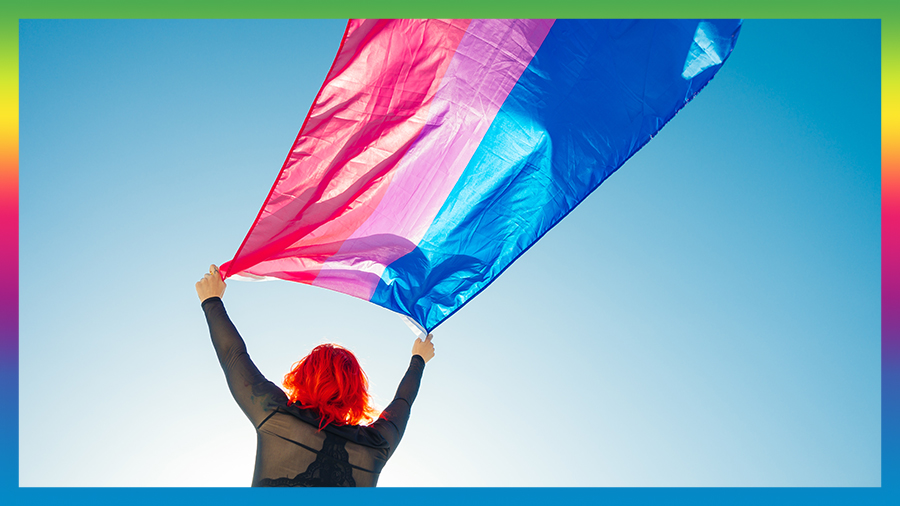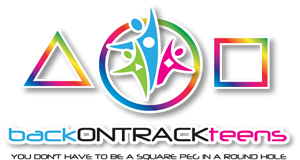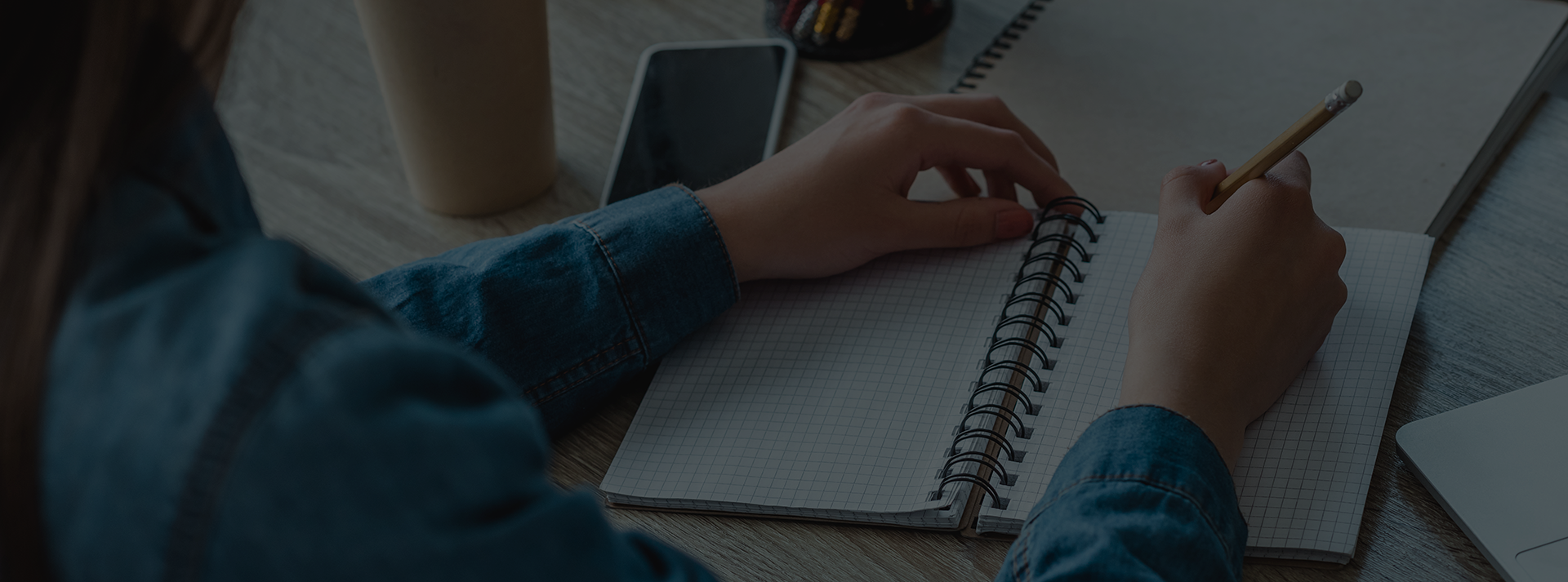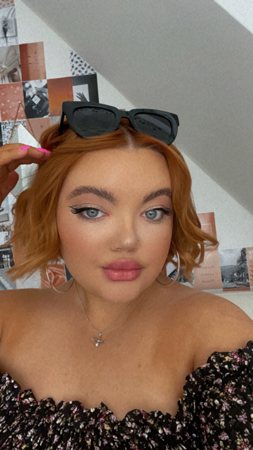
11 Sep Bella’s Story: Orange is the New Black and Glee were my awakening. I was like hang on, I want to do that
Hey – thanks for having us on your screen. Welcome to the Back on Track Teens blog for young people and those young at heart.
You’ve loaded a blog article that’s part of a mini-series about gender and sexual identity*. The mini-series shares 11 wonderful and inspiring stories from young people who identify as LGBTQ+. Feel free to read on but you may want to pause and have a quick scan of the opening article to give a bit of context around the collection of stories and resources available. Please click here to read the first article.
“You love who you love at the end of the day” – Bella
There’s always been a wide and incredibly diverse spectrum of gender and sexual identities in the world. However, it’s only recently that individuals who exist outside of a cis-gender, heterosexual identity have been able to live authentically as who they are.
As we continue our mini-series on the topic of gender and sexual identity, this blog post covers an important conversation about stereotypes and labels, sexualisation, sexuality and personality. We hear from Bella, a young woman who currently identifies as bisexual but is still, to a certain extent, questioning.
“I think [I knew] probably about aged 13, 14 but never admitted to everyone. I don’t know if it was the school environment and I didn’t want to be thought of differently, but when I got to college, so when I was about 16 years old, I’d say ‘I’m bisexual, like I like boys and girls’ – it changes on a daily basis, but I had to put a specific label on it.”
When you exist in a minority in terms of your identity, for example, because of your sexual and/or gender identity, it can be difficult or feel unsafe to speak up.
Times are changing but even when Bella was in education there weren’t many people known to be LGBTQ+ at her school. While every school is different, Bella notes that it’s highly likely that there are far more people who identify as being part of the LGBTQ+ community than she or anyone else would be aware of.
This is why representation matters so much. When people who identify as something other than cisgender or straight see other people who have the same thoughts, feelings and tendencies as them, they are more likely to feel able to be open with who they truly are.
“I feel like I have to wake up every morning and be like ‘I like this gender, I like that gender’ and it can’t just be whatever I feel like. There’s that kind of pressure to work out what it is that I like.”
What was it like to ‘come out’?
“I came out when I was 18 years old and still am kind of playing with different ideas about what I could be. I felt like I needed to, especially with my parents. I’d never really spoken about girls…I mean I’m an open book, especially with my mum, we talk about everything, but it was just never something I really spoke about and then I started seeing a girl and, you know, it was getting a little bit more serious and I was like okay I can’t hide this forever, so I was upstairs in my room, and I texted my mum and my sister who were sat downstairs in the living room. My mum still has the text message saved in her notes and it was literally, ‘look I like boys, I like girls and I’m seeing this girl, this is what’s going on – just wanted to let you know, so that it wasn’t just something that I came home with.’
My mum and my sister came upstairs straight away, and they were like ‘we don’t care’, and my dad was the exact same. I’m quite lucky they’ve all been really accepting. You love who you love and at the end of the day you’re still the same person as you were before they knew.”
For many people, exploring which gender and/or sexual identity they feel best fits them is an important stage in figuring out who they are. Making the decision to share new insights about their identity with friends, family, or via public platforms such as social media can have a significant impact on their life.
During the conversation, Bella points out that receiving a positive response and having a supportive family is the best outcome most people can ask for. However, this is not always the response that a young person taking the decision to come out to close family members will receive. Bella has heard stories of people who’ve been kicked out of their homes because they don’t conform to what somebody else believes to be the “right” way to be.
Discussing stereotypes and homophobia
Feeling that there is an identity that really represents you are can be incredibly validating. It can feel good to have a strong understanding of who you are and to have an accurate label that fits or reflects your experience.
Labels are a great way of identifying other people in your community, and by sharing yours you might be signalling to other people (who may not be out yet) that you share some important, common ground. Sharing certain labels (when you feel it is safe to do so) can also help to contextualise and explain to others who you are and how you identify.
However, in the wrong hands, labels that might uplift and validate people across the LGBTQ+ community can also be used to shrink and harm those same individuals when twisted into stereotypes.
Bella touches on hearing comments when growing up, such as ‘bisexuals are greedy [because they are attracted to multiple genders]’, ‘they’re doing it for attention’, or ‘they’re on their way to being either gay or lesbian’.
Comments like these arise from a misrepresentation of what bisexuality really is and, as a consequence, lead to ignorant comments such as the ones Bella describes. These comments are examples of biphobia.
“I’ve had it when dating a boy and they say, ‘well I thought you were a lesbian’ and it’s like I shouldn’t have to explain myself.
Girls say, ‘well who’s the girl and who’s the boy?’, and some don’t think it’s right to like boys. I like getting my nails done and people say, ‘I bet you’re a pillow princess’. This or that. Just because I take care of my appearance doesn’t change who I am – all identities are valid.”
Bella explains that one big misconception about bisexuality that she’s seen firsthand comes from heterosexual men. When they find out you’re bisexual, they seem to think that a threesome with another woman is on the cards
“I’m here because of who you are as a person, not what you have downstairs. You could be the most gorgeous person in the world but have the personality of plank of wood.”
Bella thinks it’s important for people not to sexualise sexual identity. A trend she’s noticed on the dating app Tinder is straight couples looking for a ‘unicorn’; a term that describes a third person (usually a woman) who is interested in having sex with the couple in a threesome. Bella feels strongly that couples already have their own romantic and sexual dynamic and introducing another person into that dynamic for the sake of sex may not account for the emotional wellbeing of that third person.
Bella says it’s not OK to assume that every bisexual woman is open to having sex with a straight couple simply because a bisexual person can experience sexual attraction to people of their own gender or others. It’s not fair and it’s downright degrading.
What resources are out there to help people learn more?
Bella says having a good support system is key, whatever that looks like for each person. Having someone close that you can talk to and surrounding yourself with people who accept who you are is vital if that’s possible for you.
For anyone who is questioning their identity, reading up on different ways that people can identify and discovering what the thoughts, feelings and emotions you’re experiencing might mean can help you to begin to figure things out.
“I used to search on my Blackberry ‘Am I gay’ or ‘why do I like girls’ and it made me understand it a bit more. Read up and get a good support bubble around you.”
Orange is the New Black and Glee were my awakening. I was like hang on, I want to do that.”
As more of the LGBTQ+ community is represented in media, more young people have the opportunity to follow the storyline of characters, empathise with their experiences, and understand identities outside of the heteronormative, cisgender binary. Bella recommends watching the shows Banana and Cucumber.
What advice would Bella offer to parents?
Parental figures are key role models for their children from such an early age. Parental beliefs, standards and values are highly likely to impact how their child perceives themselves and other people in the world.
Due to a lack of understanding or exposure to identities other than their own, some parents may be unaware of LGBTQ+ identities. While that in itself is not their fault, education and a willingness to learn and accept is the only way to go from that point.
“Listen and don’t take judgement until you know everything, or as much as there is to know. People take on early judgement and if you shame [your child] at all it’s heart-breaking. Have open conversations and ask questions. My mum still asks questions, my dad and my gran. Educate yourself. It can be scary coming out – I was crying as I was texting my mum and sister because I didn’t know what would happen.”
Normalising the conversation, having no judgement and not assuming your child’s sexuality will be heterosexual, or thinking they may identify as LGBTQ+ because of stereotypes is a great place to come from.
How can sex education be improved in schools?
Throughout this mini-series we have heard about the limitations of sex education in schools – even education focused on heterosexual sex is limited, so it’s an area of the curriculum that must change.
“We were shown tampons, sanitary towels and the pill and boys were shown how to put a condom on. We learnt what STDs were but nothing else.”
Bella raises the point that only the heterosexual sex is touched on in school education and that you end up learning on your own about how to do it in other ways. She believes that kids will have safer sex if taught about it at an early age rather than relying on mediums like porn, which can be unrealistic and, in some cases, even harmful.
“They don’t teach the emotionally vulnerable side of [sex] and mental health. One sexual experience could completely change your future. Going out and having to learn adds more pressure because you think you should know what you’re doing.
“In sex, a lot of people would rather just fake it and pretend they are having a good time rather than saying I would rather you do this – and because it’s never taught that you can talk about it, it’s considered rude. Now I explain what I enjoy before having sex.”
This highlights another important point around communication and setting boundaries with sexual partners. When people can have a conversation around what is and isn’t acceptable, and what they do and don’t like, there are fewer misconceptions. Open communication and a focus on enthusiastic consent means sexual partners are more likely to be safe and happy.
What advice would Bella give to her younger self if she got the chance?
“Don’t be afraid to come out earlier and ditch the people who would have judged you for it. Stick to the people who actually care about who you are and not what you bring to the table.” Bella.
Listen to Bella's story
Choose the life you want to lead
Everyone has a different timeline when exploring their identity and it is an individual journey. If you have enjoyed reading this blog post, feel free to read more stories from incredible young people and share the series with your friends and family.
Find the full podcast series here, the blog article series here and connect with us on social below:
Everyone has a journey to experience and a story to share. Learn more, increase your knowledge and find your community to live a more fulfilling and happier life. Everyone is unique and deserves to feel comfortable and accepted in how they identify.
“The only queer people are those who don’t love anybody.” Rita Mae Brown
Thanks for reading…
Creating the gender and sexual identity mini-series has been an incredible experience for the Back on Track Teens team.
- I encourage you to go ahead and download our free eBook, which brings the interviews together with a huge collection of information, resources and inspiration.
- Subscribe to the Spark to Your Success podcast here.
- Access insightful stories, helpful exercises and more resources on our blog.
- Refer to the Back on Track Teens LGBTQ+ glossary here.
- Order ‘The Spark to Your Success – Helping Teens Build Resilience’ here.
- Order ‘The Spark to Your Success – Mindset Magic for Teens’ here.
Are you a parent or caregiver of a young person who may be experiencing challenges around gender and/or sexual identity? Book a session with TeeJay Dowe
Work at a school or organisation and want to know more? Book an awareness training session
*The blog articles capture real stories and the topic of conversation is frank. Its purpose is to elevate the voices of people within the LGBTQ+ community, answer questions, provide resources, and offer support.



No Comments